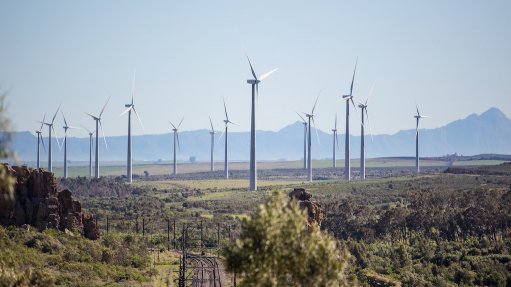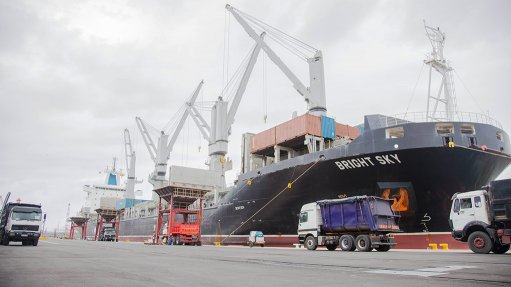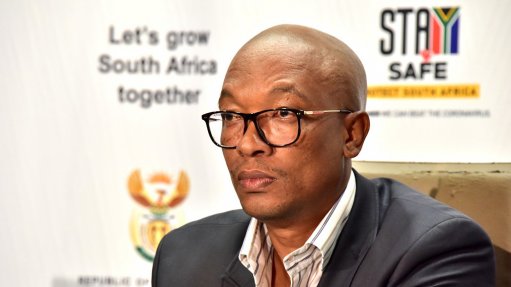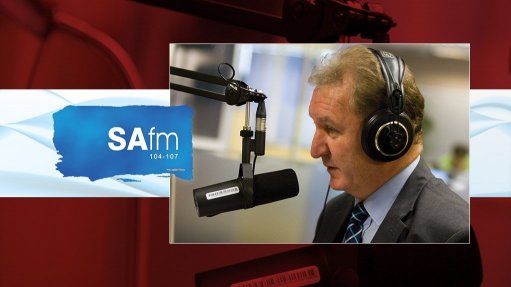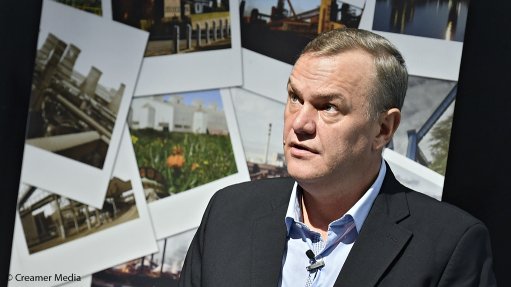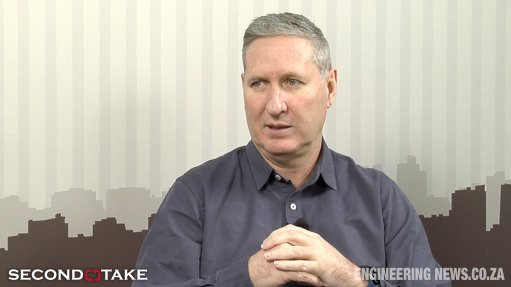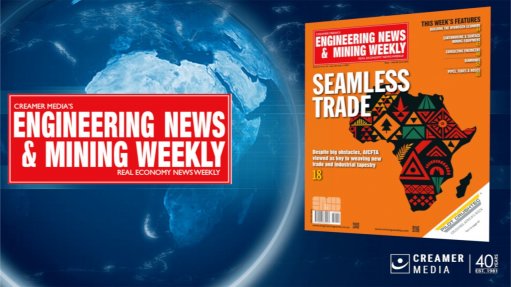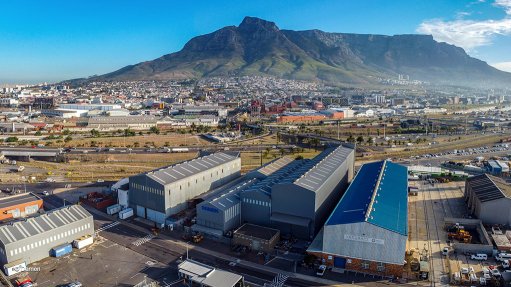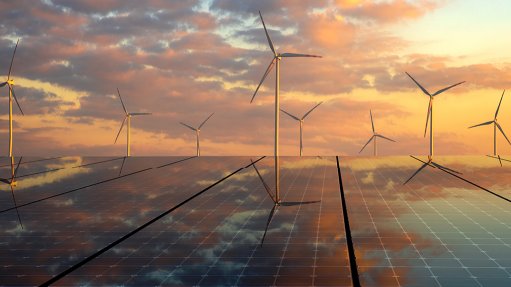AMSA to continue operating longs business, but instability at flats unit hits earnings

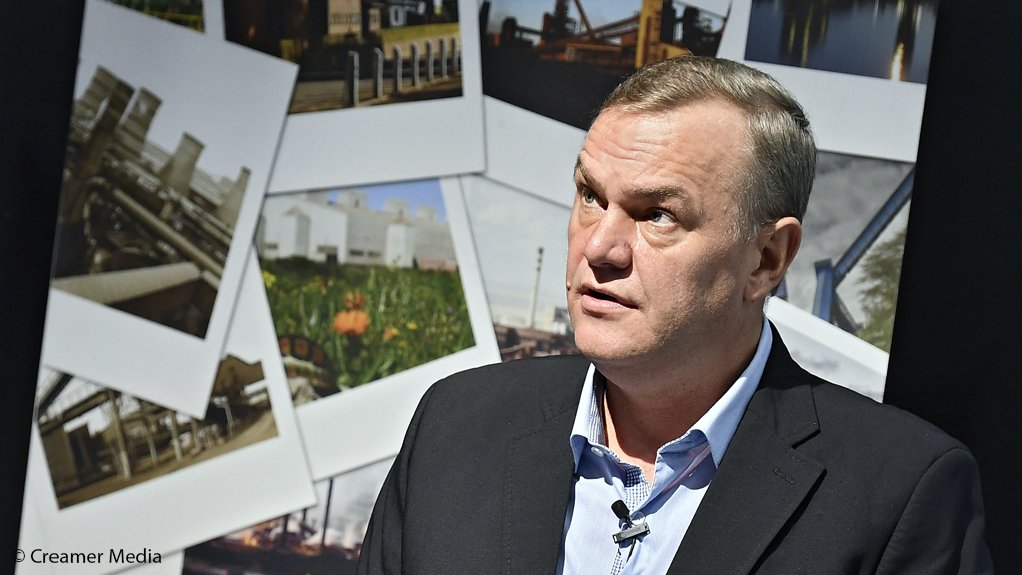
ArcelorMittal South Africa CEO Kobus Verster
Photo by Creamer Media Chief Photographer Donna Slater
Despite a negative trading update, steel producer ArcelorMittal South Africa (AMSA) has announced that it will continue to operate its longs business, the closure of which was deferred earlier this year while various initiatives aimed at saving the unit were pursued with government, labour and other stakeholders.
Any closure would be devastating for the 3 500 workers employed in the longs business, as well as the town of Newcastle, in KwaZulu-Natal, where AMSA’s longs production is centred. Studies estimated that the livelihoods of up to 80 000 people in the long-steel value chain or in communities in proximity to the operations could have been lost.
It also would have had major implications for South Africa’s manufacturing prowess and the country’s overall industrialisation.
CEO Kobus Verster said that, despite uneven progress in finding a lasting solution, the longs business remained fully operational, and a working-capital facility of R1-billion had been secured for a 12-month period.
Progress had been made in removing the advantage that scrap-based producers had over integrated mills using iron-ore, with the export ban on steel scrap having not been extended in December 2023.
There had also been an improvement in Transnet’s performance, despite negotiations to guarantee port and rail service efficiency still being under way.
Verster said AMSA continued to assess the prospects for pursuing third-party access to the rail network having estimated that its tariffs were about 30% above competitive levels. However, such a strategy would require capital that the group currently did not have in supply.
AMSA also welcomed the provisional safeguard duty of 9% to be implemented on certain hot-rolled steel products by the International Trade Administration Commission and reported that applications for protection on other steel products, including long products, were being pursued.
The group has been calling for higher levels of protection than the blanket 10% currently applied for several years, and Verster argued that he felt that import duties of 25% were currently justified, noting that various other countries had implemented similar levels of duty to protect their steel industries.
Meanwhile, discussions with organised labour during the deferral period aimed at reducing the cost structure of the longs business had proved unsuccessful, and Verster indicated that a resolution on labour costs was still required.
BOOSTING DEMAND A PRIORITY
He also stressed that the progress made to date on the other short-term initiatives only partially addressed the structural unsustainability of the longs business and workstreams had been set up in a bid to shore up local and regional demand.
He described the Steel Masterplan introduced during the previous administration as having been ineffective to date and expressed the hope that the new Minister of Trade, Industry and Competition, Parks Tau, would find a way to re-energise support for the sector.
“The focus now must be on the demand-side of the economy,” he argued.
“How do we create more local demand? How do we promote localisation more aggressively?”
AMSA also warned that its financial performance for the six months ended June 30 would be weak, indicating in a statement that earnings per share could decline period-on-period from a R0.32 loss, to a loss per share of between R1.04 and R1.10. Headline earnings per share would decline from a R0.40 loss to a loss per share of between R0.96 and R1.04.
This weaker performance was attributed largely to the flat-products unit, with AMSA reporting that the Vanderbijlpark mill experienced notable instability at its blast furnaces in April and May, owing to chilled hearth conditions.
This resulted in some loss of sales and higher costs in a market that was already experiencing thin margins, owing to depressed steel prices and what Verster described as historically low domestic demand.
“Blast Furnace C returned to operation on 1 May after a three-week outage, while Blast Furnace D resumed on 29 May following a five-week outage.
“Increased steel inventory levels, initially prepared for a planned second quarter 2024 repair, enabled continued supply to customers.
“Overall, approximately two weeks of sales volumes were lost, which may be recovered in the second half of 2024, market conditions permitting,” AMSA said.
It indicated that recovery plans for the second half of the year included a rescheduling of the Blast Furnace C shotcrete and hearth repair to later in the year.
The longs business, meanwhile, had maintained operational stability throughout the period, and was “broadly performing within expectations”.
The results for the interim period are due to be released on August 1.
Comments
Announcements
What's On
Subscribe to improve your user experience...
Option 1 (equivalent of R125 a month):
Receive a weekly copy of Creamer Media's Engineering News & Mining Weekly magazine
(print copy for those in South Africa and e-magazine for those outside of South Africa)
Receive daily email newsletters
Access to full search results
Access archive of magazine back copies
Access to Projects in Progress
Access to ONE Research Report of your choice in PDF format
Option 2 (equivalent of R375 a month):
All benefits from Option 1
PLUS
Access to Creamer Media's Research Channel Africa for ALL Research Reports, in PDF format, on various industrial and mining sectors
including Electricity; Water; Energy Transition; Hydrogen; Roads, Rail and Ports; Coal; Gold; Platinum; Battery Metals; etc.
Already a subscriber?
Forgotten your password?
Receive weekly copy of Creamer Media's Engineering News & Mining Weekly magazine (print copy for those in South Africa and e-magazine for those outside of South Africa)
➕
Recieve daily email newsletters
➕
Access to full search results
➕
Access archive of magazine back copies
➕
Access to Projects in Progress
➕
Access to ONE Research Report of your choice in PDF format
RESEARCH CHANNEL AFRICA
R4500 (equivalent of R375 a month)
SUBSCRIBEAll benefits from Option 1
➕
Access to Creamer Media's Research Channel Africa for ALL Research Reports on various industrial and mining sectors, in PDF format, including on:
Electricity
➕
Water
➕
Energy Transition
➕
Hydrogen
➕
Roads, Rail and Ports
➕
Coal
➕
Gold
➕
Platinum
➕
Battery Metals
➕
etc.
Receive all benefits from Option 1 or Option 2 delivered to numerous people at your company
➕
Multiple User names and Passwords for simultaneous log-ins
➕
Intranet integration access to all in your organisation







